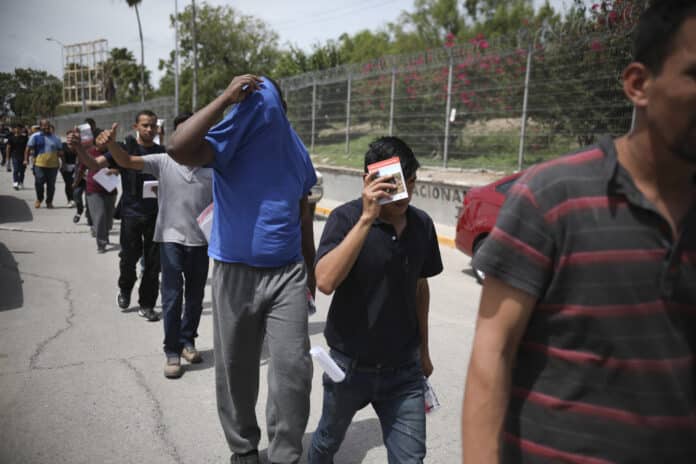
By NOMAAN MERCHANT Associated Press
HOUSTON (AP) — With its long-term facilities for immigrant children nearly full, the Biden administration is working to expedite the release of children to their relatives in the U.S.
U.S. Health and Human Services on Wednesday authorized operators of long-term facilities to pay for some of the children’s flights and transportation to the homes of their sponsors.
Under the agency’s current guidelines, sponsors can be charged for those flights and required to pay before the government will release children, even if the sponsors have been vetted by the government.
Those costs can sometimes exceed $1,000 per child.
An internal memo sent Wednesday and obtained by The Associated Press authorizes facility operators to use government funding for transport fees “in the event that a sponsor is not able to pay fees associated with commercial airfare, and a child’s physical release would be otherwise delayed.” HHS did not immediately respond to a request for comment Wednesday.
HHS has drastically cut its capacity due to the coronavirus pandemic. Nearly all of the department’s 7,100 beds for immigrant children are full. Meanwhile, Border Patrol agents are apprehending an average of more than 200 children crossing the border without a parent per day.
HHS reopened a surge facility at Carrizo Springs, Texas, that can hold up to 700 teenagers, and may soon reopen another site at Homestead, Florida. While they have beds, classrooms and dining areas, surge facilities cost an estimated $775 per child per day and are not subject to the same licensing requirements as regular facilities. Democrats sharply criticized them during the administration of former President Donald Trump, and news of Carrizo Springs’ reopening has drawn criticism from some Democrats as well as Republicans who argue Trump was unfairly blamed.
Experts on the detention of immigrant children say HHS needs to relieve pressure on its overall system by changing how it works and that opening surge facilities does not resolve underlying problems.
“While we recognize the Biden administration’s efforts to process unaccompanied children in a responsible way that addresses public health needs and prioritizes children’s safety, it is critical that it not repeat the mistakes of the Trump administration,” Naureen Shah, an
attorney for the American Civil Liberties Union, said in a statement.
One longstanding requirement that has delayed some releases is forcing sponsors to pay for airfares.
“Facilities have told families that they will not release a child unless they specifically go to a specific travel agency and purchase tickets,” said Dr. Amy Cohen, executive director of the advocacy group Every Last One.
In one case this week, Cohen said, staff at a facility told a woman that she would have to bring a certified check to the airport in order to collect her child, who has been in an HHS facility for three weeks.



